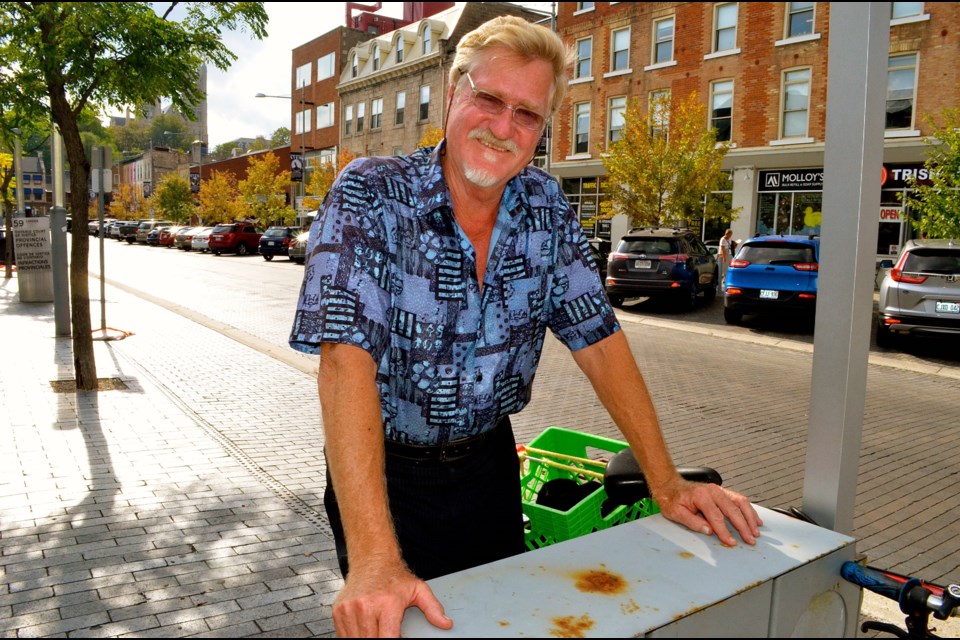During his farewell speech as 34th president of the United States, Dwight D. Eisenhower cautioned that those in councils of government, “must guard against the acquisition of unwarranted influence, whether sought or unsought, by the military industrial complex. The potential for the disastrous rise of misplaced power exists and will persist.”
It is a warning that subsequent administrations chose to ignore as did US allies such as Canada and now Kornelis Klevering wants to make it a campaign issue.
“There are two components to my platform,” said Klevering. “The outstanding one is nuclear weapons. Attached to that is an area none of the candidates ever speak about and that is taking on the military, the military industrial complex. The money that is pissed away on the military has to come to an end.”
Canada’s national defence budget in 2018 was about $25 billion.
Klevering feels that a large percentage of the population is against increased military spending, but party leadership avoids the topic out of fear of being seen as soft on terrorism and not supporting the troops.
“I am running to offer an alternative to people that feel strongly about voting but are so frustrated with the current status quo they don’t vote,” he said. “So, rather than not vote, they should vote for someone that is completely outside the traditional political arena.”
For more than a decade Klevering represented the Marijuana Party but with the main party platform, legalizing marijuana, in the bag he is charting a new course.
“I guess you could say we had some success,” he said. “Certainly, the Marijuana Party wasn’t the only source of pressure placed on the Liberals to legalise marijuana, but it was a federal political party that ran candidates. They had to take note. So, now that it is quazi-legal or however you want to describe it, it’s time to move on to more important issues.
He’s not just done with the Marijuana Party. He’s done with party politics altogether.
“It is called the House of Commons for a good reason,” he said. “It’s not the House of Parties, you know what I mean? It is supposed to be commoners that run the House and you are more of a commoner if you run as an independent.”
His first experience with the party system left a bad taste in his mouth.
“I studied political science in university so maybe it’s in my blood,” said Klevering. “The closest thing to my heart since I started university was socialism. I have always been a socialist.”
He naturally gravitated toward the NDP.
“I was a socialist in 1973 when I joined the NDP as a Waffler,” he said. “It didn’t take long before I was expelled with the rest of them like James Laxer for being too leftist.”
The New Democratic Party started in the summer of 1961 as a socialist party led by Saskatchewan Premier Tommy Douglas. Over time the party moved more to the centre giving rise to a radical faction known as the Waffle or Movement for an Independent Socialist Canada.
“By the time 1973 rolled around the NDP had compromised all of their basic socialist principles except for one, which us Wafflers embraced and that was the nationalisation of the banking system in Canada,” said Klevering. “Nationalising the banking system is central to the socialist blueprint for the country. Mr Broadbent didn’t agree with that so, we were all booted out.”
The Wafflers ran candidates in the 1974 federal election but failed to get a single seat and dissolved shortly after.
“The whole idea of parliamentary democracy becomes suspect if you have to change your principles to get elected,” said Klevering. “As a single person or an independent you are more of a commoner. You can say and do what you want without the pressures of a leader or towing party line.”
He believes the best response to many of the world’s problems is to adopt a socialist system.
“The way to address climate change is to take on the fossil fuel industry,” he said. “The way you do that is using a socialist blueprint and nationalizing the energy sector in Canada. But that is only national. It has to be on an international scale. There has got to be what I call the World Federation of Socialist States.”
He has no illusions about winning the election but the same was true when he ran for the Marijuana Party. They never formed government but pushed legalisation as a campaign issue until it was adopted by a mainstream party.
“There are just as many people here fed up with the mainstream parties as anywhere so, why wouldn’t they vote for me under the banner of a socialist blueprint with the emphasis on getting rid of nuclear weapons and the military industrial complex,” Klevering asked? “You can be sure that none of the candidates will be talking about that.”
